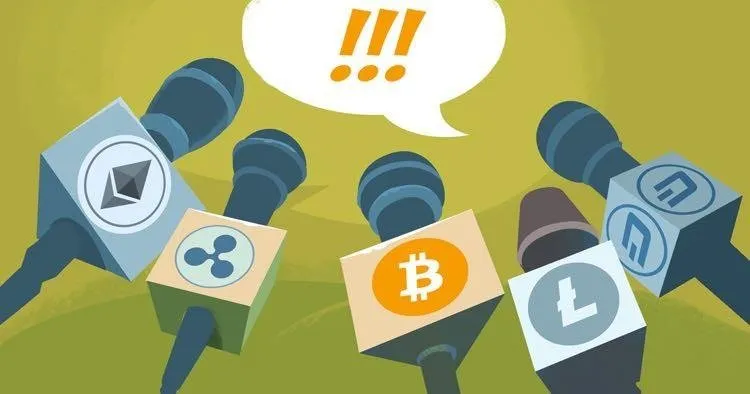Gleb, a marketing expert at the decentralized search engine project BitClave, told DeCenter why during an ICO it is not worth turning to agencies and most of the crypto news outlets, why an ICO without a community is not an ICO, and how Bitcointalk is similar to the songs of Sergey Lazarev. 
How Long before the ICO Should One Start Planning the Campaign?
———————
In an ideal world, one should start planning a year or two in advance. In any case, first you need to think about the product, and then about the ICO. Most of the projects, however, raise the money first, and then develop the product, which is why everything is so sad right now, and ICOs have become regarded as purely a fundraising idea. In the case of BitClave, we had thoughts about what the platform should be like for a long time, and work began in December 2016, six months before the ICO.
How Much in Dollars
——————————
In comparison with 2017, today there are completely different amounts of funds. It would be desirable to name some beautiful figure, the specific amount that ICO projects should spend for successful promotion, but money does not guarantee the success of an ICO. In the case of a startup at its initial stage, it all depends on the people you work with, as some people are willing to work for free, and others need to be hired. All of this is very flexible, and even a minimal budget is difficult to estimate, as this is not a machine of some kind with parts that have a fixed price. I would advise ICO projects to think more about the product they wish to showcase to the people and how to find their audience. A purely material approach is not entirely correct and it does not really work anymore as it did before. It will no longer be possible to raise money on hype alone.
Advertising to Invest in
———————————-
When BitClave started, the market was in its infancy. Today, a large number of listings and bloggers have already developed promotional packages. Telegram also has more channels now than it did in the summer [of 2017]. The situation is changing very quickly, so you will not be able to work by a fixed algorithm and you will have to look for new avenues of approach. There is always something that does not work, and this is not only connected with ICOs, but with any project. When you start doing the abnormal things, it usually works out. Nobody needs press releases and mailings anymore. I had a case where I bought advertising on Telegram for 1,000 rubles. I was sitting in a large Telegram group about cryptos and one of the users said that he is conducting a study on the analysis of ICO projects. I looked at his materials, and they were really good. I advised him to make a channel on Telegram, since all of the crypto audience is concentrated there. But back then, he did not even know what a channel was. I helped him create a group in Telegram, and he invited me to make a detailed review of our project in his channel on YouTube. I agreed, but, frankly, the success of the review did not particularly count, given that there was only an average of 10 views for the video. As a result, he made a review for more than 20 minutes and a post on Telegram, and a month later he wrote to me "Well, how many people came from my group?" And I did not even follow it then. We asked the group members and three people said they contributed about $500 after viewing the review on YouTube. So, a thousand rubles brought a minimum of $1,500. Now the situation is different and it is difficult to imagine a repeat of such a scenario.
In June and July 2017, when blockchain was at its peak, you could throw money at any problem of promotion, for example, by buying advertising from top bloggers or top websites. But when everybody started doing it, the effectiveness of this approach fell sharply, as those who wanted to invest the money had already invested and the market . . . It is not in a state of stagnation, of course, but it is not growing as it did before. For now, at least.
Bitcointalk is like the Tracks of Sergey Lazarev
——————————————————————-
Although the site looks rather pathetic and very old, when I started working there, I thought that I was returning to 2008 with all these forums, but then I saw the kind of traffic it attracted. That is, many people will learn about a new project from there. Therefore, Bitcointalk users who participated in the bounty of some ICO project could earn $8,000 to $15,000 per month just by leaving a few comments per day on the forum. This is generally a staple, and it still works, as pumped accounts do leave a certain impact by supporting a project just for show. But, as Pavel Durov said about the tracks of one singer, they do not bear cultural value. That is, 95% of correspondence on the forum simply does not make sense: one promoter writes something and is answered by five more promoters who also need to wind up comments. At the same time, the users who started early could make big money on it. This is like buying Bitcoin in 2013, only here you actually had to put some elbow grease into it.
It's All about the Community
——————————————
The key to a successful ICO is in working with the community, because forming a community around your product is the main goal of an ICO. Otherwise, the sense of this format is lost: you can simply find yourself an investor and raise the money with less sacrifices in terms of nerves, because the ICO process is more complicated than simply getting money from a fund. And the trick is that you get people who invest in you, and make a bet on you. In a venture environment, there is the concept of "smart money,” when, in addition to funding, you are helped both by advice and by connections. A properly conducted ICO is smart money on a whole new level. Every BitClave employee who worked actively on the product, one way or another communicated with the community on their topics. I dealt with security bugs, someone was in charge of the promotion, and they were advised by specific aspects, for instance, where you can get to in which blog. This is the advantage of an ICO, as you are in contact with people in the literal sense. We had people who, in addition to money, contributed a bunch of their ideas and proposals. They thought 24 hours a day about how to improve the product, and were, in fact, the second team. Footballers call their fans "the 12th player,” but this is just a beautiful phrase, while the community really does some of the work. For example, we had a bounty for bugs, and people found them and sent us reports, and we paid our tokens for this. There were those who worked for CAT tokens for 16 hours a day with us. This is an example of how the ecosystem starts forming around the project.
Size Does Not Matter
——————————-
There is already such a joke that an ICO project needs to make a website and put a thousand people on the landing to inspire more confidence. But this joke should not become reality. I think, to make an ICO, you do not need to have a big team. The idea is more important, which is already embodied in the prototype. But this practice of shoving a bunch of people on the site with a mandatory CEO is pure idiocy. There may be only 2 people, but the main thing is to have a prototype product. This is feasible. A separate topic is the advisors, who simply go from one project to another. It is amusing to watch people migrate from one to the third, fourth, fifth, seventh project. Those who are well-versed in the topic, those who are more or less professionally engaged in ICOs know such people. And even when they are seen at conferences, they evoke nothing but laughter.
From my experience of working with the community, I can say that people who have been with us for a long time can also be put on the site. When I started working, I thought it would be the same people who wind up comments of Bitcointalk, as bounties are associated with retweets and with Bitcointalk subscriptions. And, perhaps, this is a large part of the bounty in terms of volume, but it is not the main part. People who have made a greater impact did not do this. Among them were many really highly professional specialists who have 15 to 20 years of experience in their respective fields. And they are ready to work for tokens with the common goal to share this experience even without being officially part of the team. This is really cool.
Are Cryptos the Future?
———————————
I think that blockchain is a cool sector, here you can mark X's in your development. The market is new, and the people who come now will be appreciated afterwards no matter what project they work in.
The blockchain industry has already become a fashionable sector, and the "sexuality" of blockchain experts will only grow, because the idea itself is very promising in terms of removing intermediaries and connecting people directly. That is, efficiency is improved, and money is saved. You do not have to be a genius to understand that blockchain is cool and you have to move with it. Now, I think, the projects that want to build their ecosystems will be the winners, because without an ecosystem, the technology itself will not work. Corporations such as Apple, of course, will introduce some features, but they generally started lagging behind, because decentralization is about something else. Both Android and Apple built around their projects an ecosystem, and they have a lot of money thanks to this. In addition to selling the devices themselves, they earn money on applications. Accordingly, the blockchain projects that will be able to build an ecosystem around their projects will become dominant.
—————————————————
Don’t miss out next post! Comment, ask, upvote and follow @atimk23! 